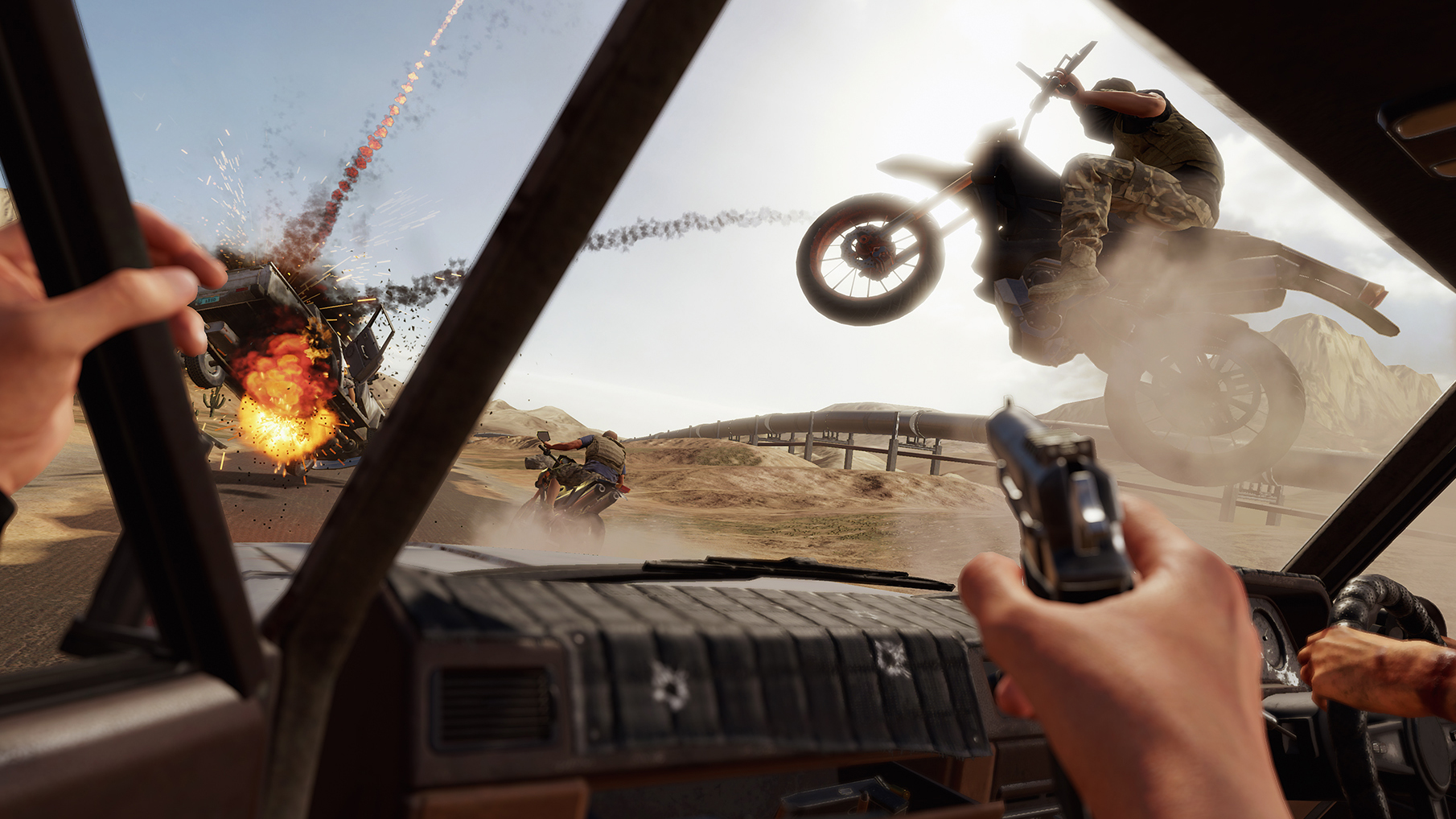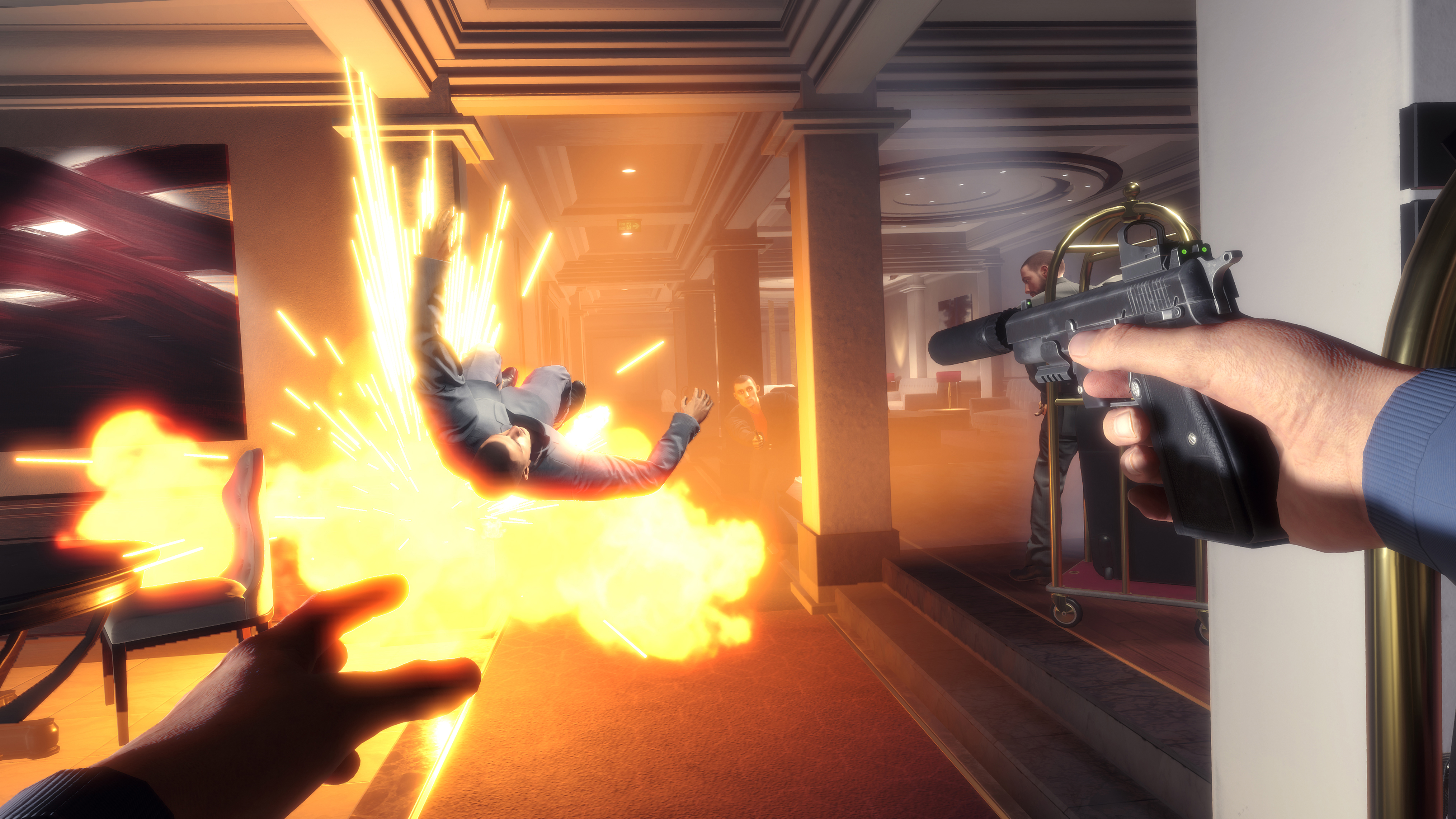How PSVR crime caper Blood and Truth pays respect to grime music

Sign up for breaking news, reviews, opinion, top tech deals, and more.
You are now subscribed
Your newsletter sign-up was successful
What are the first things that come to mind when you think of London? It might be the Royal family, and with that the glamor of penthouses, casinos, and swanky modern architecture that populate the city’s skyline. Or perhaps it’s the gritty East End cockney geezers popularized by early Guy Ritchie movies and British hardmen like Danny Dyer.
But if we’re talking about the sound of London, it would have to be grime. Since the genre’s roots in the capital’s underground scene from the early 2000s, it has become one of the most significant musical developments within the UK for decades.
For new London-set PSVR action game Blood and Truth, developed by Sony’s London Studio with an aim to authentically capture contemporary London, having grime as an integral part of its sound was therefore a no-brainer.
“You turn a corner from a penthouse and then you’re in a council estate, and no matter what street you’re on at night it’s still gritty - it’s beautiful, and dark.”
Eyez
In fact, it’s come full circle for grime to be soundtracking a videogame. The genre has its roots in the medium, its retro blips and MIDI sounds a favorite for sampling, from Street Fighter II to ‘godfather of grime’ Wiley’s ‘Crash Bandicoot Freestyle’. Grime producer Sir Pixalot had even unearthed an obscure Wolverine Mega Drive/SNES game from back in 1994, containing what might be considered the ‘first grime instrumental’.
It’s a sentiment shared by Eyez who, along with other grime artists including JME, Kamakaze and Ocean Wisdom, have contributed to Blood and Truth’s soundtrack.
“I also produce, so I use a lot of old-school sounds and sound effects you get from games,” Eyex tells us. “Even grime itself was made from a program called Fruity Loops (FL Studio), which is used by gamers as well, so a lot of the sounds in our genre is from games.”
You only live grime

Of course, the grime you hear in Blood and Truth has a major difference. With an emphasis on immersing you as an action hero in your own blockbuster, an obvious influence was the kind of grand orchestral scores you get from James Bond films. But as a big triple-A action game in modern London, the developers hit on an idea of mixing classical strings and brass with the bass and beats of grime. Grime, coined for its gritty aesthetic, with production values like a 70-piece orchestra? As Dizzee Rascal might say, it sounds bonkers!
Sign up for breaking news, reviews, opinion, top tech deals, and more.
Sceptics might even see this as a corporate studio trying to make their game sound more ‘street’ while at the same time trying to make it sound more ‘respectable’ - you might even draw an allegory of the gentrification that London has undergone in recent decades. But for game composers Joe Thwaites and Jim Fowler, it was really about combining two seemingly contrasting sounds to do something special, and that was achieved through collaboration.
“We recorded the orchestra - strings, brass, and percussion - all separately in different stems and then we’d give these stems to Zdot, who’s a grime producer, and then he would basically remix them and create different tracks,” Thwaites tells us.
It’s Zdot’s beats that Eyez then raps over, punctuating key set pieces during the game, such as a frenetic car chase shoot-outs. In fact, if you play really well, pulling all manner of tricks and headshots, not only do you increase your gauge on the ‘badass-o-meter’ but the bass and beats take over as the soundtrack goes full grime.
For Eyez, the juxtaposition of orchestral grime actually fits London’s mixed culture. “You got the lower classes and upper classes side by side,” he says. “You turn a corner from a penthouse and then you’re in a council estate, and no matter what street you’re on at night it’s still gritty - it’s beautiful, and dark.”
You might say the orchestra, rather than elevating grime, respectfully meets it on the same level, similarly to how Zdot takes the orchestral stems and subverts them.
“Even though I do grime, I appreciate music in so many different ways, and I’ve worked with an orchestra when I was younger,” Eyez elaborates. “In a studio environment, there’s more to learn musically, watching how these musicians work under pressure and do things with their instruments they don’t normally do.
“So someone’s playing a cello, plucking it and holding it in a weird way, trying to make a grime noise that’s like a game noise, which is not normally how you play it.”
Licence to mix

Blood and Truth’s creative use of music also extends to its use of licensed tracks, which aren’t exclusively grime, such as an opening car chase soundtracked to Tim Deluxe’s dance floor banger ‘It Just Won’t Do’ playing on the radio. While it starts like the kind of diegetic music you’d expect, the composers do something much more subtle by blending the licensed track with the orchestral score until it miraculously transitions into the score itself - a truly immersive effect in VR.
Such a feat basically requires making an orchestral remix of the track, which means getting the blessing of the track’s artists.
“We were really lucky to work on licensed music where we had relationships with Sony labels,” explains Thwaites. “We were able to build relationships with the artists of the tracks and they were excited to have orchestral versions of their track.
“A lot of them came down to the recordings too and had inputs on how we could it in different directions, so it was a very collaborative project."
"I don’t think anybody can say it’s theft of our genre or culture - if anything, it’s pushing our sound out to the gaming world."
Eyez
Considering the recent controversy over Fortnite stealing dance moves, notably ones invented by black actors and rappers, the kind of collaboration with artists demonstrated by Sony is refreshing in comparison, a triple-A studio paying respect to grime. But then you might say PlayStation has always had its finger on the pulse of the underground, harking back to when it installed original PlayStations in London’s Ministry of Sound and the club music which soundtracked futuristic racer Wipeout.
Incidentally, Eyez recalls a music production game he once had on PlayStation 2 where the default BPM was 140, the default tempo for grime, so in a way the two had subliminally always been entwined.
“We’re really lucky for Playstation to incorporate our stuff into their production,” he says. “I don’t think anybody can say it’s theft of our genre or culture - if anything, it’s pushing our sound out to the gaming world.”

Alan Wen is a freelance journalist writing about video games in the form of features, interview, previews, reviews and op-eds. His work has appeared in print including Edge, Official Playstation Magazine, GamesMaster, Games TM, Wireframe, Stuff, and online including Kotaku UK, TechRadar, FANDOM, Rock Paper Shotgun, Digital Spy, The Guardian, and The Telegraph.
